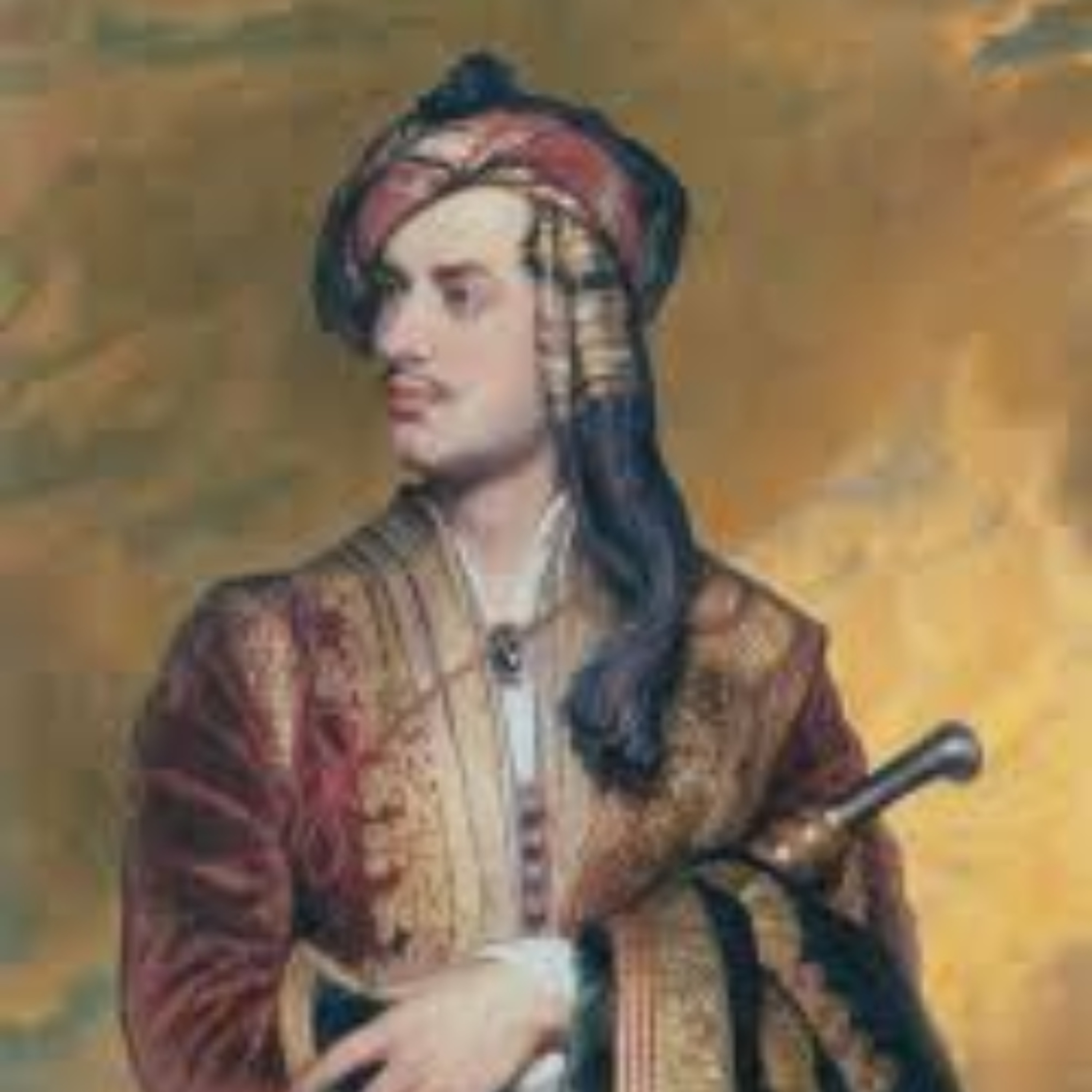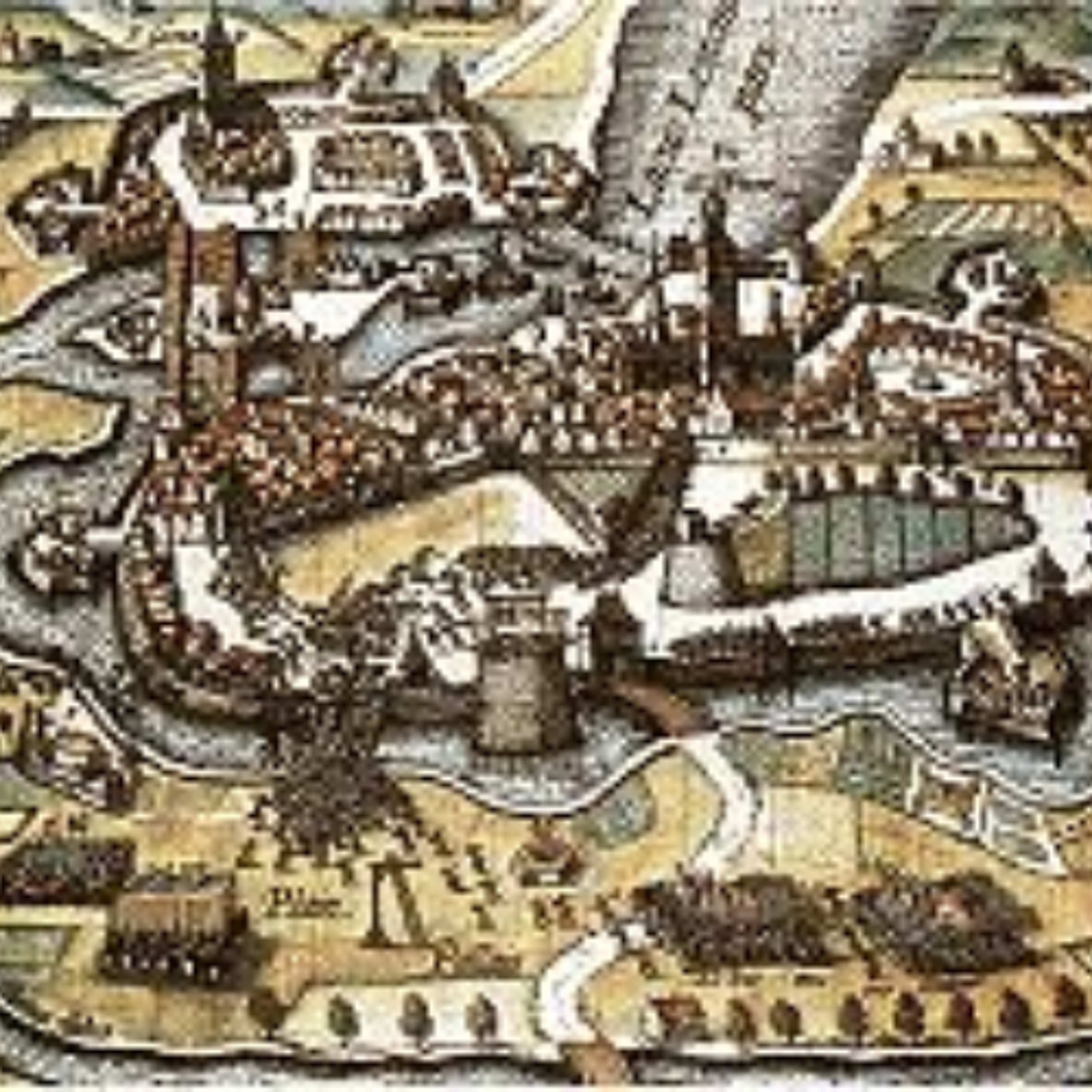*PREVIEW* History of Georgia, Part 1 (feat. Omar Tsotsoria)
https://www.eventbrite.co.uk/e/livestream-lions-led-by-donkeys-podcast-live-in-glasgow-4th-october-2025-tickets-1532091008449?aff=ebdssbdestsearchgl=1s0822wupMQ..gaNDgyMTk4OTc3LjE3NTc4NjgzNzM.ga_TQVES5V6SHczE3NTc4NjgzNzMkbzEkZzAkdDE3NTc4NjgzNzMkajYwJGwwJGgw
It's a special version of History of Armenia in which Georgian journalist Omar Tsotsoria joins the show to discuss the history of another Caucasian country, and the specific history of an early-Soviet-era anarchist breakaway state in the Georgian SSR.
Get the whole episode on Patreon here: https://www.patreon.com/posts/139624712
Press play and read along
Transcript
Speaker 1
History of Armenia is officially the history of Georgia. I thought this would be a really cool story because you told me about it.
Omar is our good friend.
Speaker 1 For many years, you and Ani went to university together.
Speaker 1 And you told me this story. And I'm like, this is so incredibly interesting because, like many Armenians, I don't know a lot about Georgian history.
Speaker 1
And especially like pretty much every American, I certainly don't. So I thought it'd be really interesting to bring you on the show.
But before we get on to the history of the radical left in Georgia,
Speaker 1 specifically like early Georgia, why don't you tell us a little bit about yourself, Omar, so everybody knows you and loves you as much as we do.
Speaker 3 Oh, thank you.
Speaker 3
Okay, first of all, I want to thank you for having me here. Then, okay, a bit about myself.
As I said, my name is Omar.
Speaker 3
I studied history in the university, and then I was like, I became like a history buff. I never, I did my first major actually in history.
Then I studied journalism with Ani.
Speaker 3 And now it's been like more than 10 years that I'm working as a journalist. But my first degree was a history degree.
Speaker 3
And I just became a history buff, which means like I never worked as a historian one day in my life. I just worked as a touristic guide.
And that's when I
Speaker 3 actually used history degree in only two cases.
Speaker 3 When I was working as a touristic guide, And when I'm watching the movies about the history, I am the one guy who complains a lot.
Speaker 5 Just live commentary.
Speaker 3
Yeah, just live commentary there. Like, no, they cannot have that paint like this in 12th century.
That's impossible.
Speaker 2 Like,
Speaker 3
things like that. Like, yeah, yeah.
I'm not the right person to watch a movie about history. That's for sure.
Speaker 1
Yeah. Same.
I am guilty of this crime as well.
Speaker 1
I am an annoying motherfucker to watch any war or history film with. I have been told.
I've been warned.
Speaker 5 He has been muted.
Speaker 3 Same here. Same here.
Speaker 3 What do you think is the worst worst offensive when we are speaking about history movies? Movies about a history lag.
Speaker 1 I think
Speaker 1 it tends to be anything from a history where anybody really likes to talk about
Speaker 1 any history from any country we happen to be from where it's like lionized and glamorized. Like, specifically, like American World War II films are really bad about this.
Speaker 1 Where it's like weapons they didn't have at the time, tactics they wouldn't use.
Speaker 1 Yeah, it's the little minutiae that drives me insane. Like, okay, that wouldn't happen
Speaker 3 exactly same here like i'm not like uh army history expert but like uh there are certain movies which like drives me crazy and there are like actually quite a few historical movies which are a little bit accurate i don't think any of them are accurate like 100 and it's okay but there are only quite exceptions where i think yeah okay this this this is quite quite accurate yeah that's why we thought it's good to have you here because the only accurate history is history of georgia rather than history of armenia you know?
Speaker 5 It's like enough with the myths and legends, you know, of great Armenians.
Speaker 1 And I assume,
Speaker 1 I will say, we did do a series on Georgian history in the 2008 war.
Speaker 1 And I didn't make a lot of Georgians mad, which I thought I would, because the last thing anybody wants to hear is their history, especially such recent and horrible history told by someone who is not them.
Speaker 1 But when it came to
Speaker 1 what you're going to talk about, it requires such an in-depth knowledge of Georgian history. I'm like,
Speaker 1 I can't do this.
Speaker 2 No way.
Speaker 1 Yeah, it's quite difficult.
Speaker 3
Even this topic was quite difficult because, like, there are many sources which creates this idea that you must know. I mean, it's pretty easy to find the truth of what happened there.
But, like,
Speaker 3 everything was changed and reshaped so many times that even when I was sure in a couple of cases that, okay, this happened, then I found out, no, it's absolutely not true.
Speaker 3 Uh, and yeah, I mean, uh, Stalin propaganda changed a lot.
Speaker 3 I will say this uh during our story, doing our podcast, our podcast, but like, uh, when I was reading this story about Guria, and uh, then I read a book was written about those events during the Stalin times.
Speaker 3 It seems like Stalin was in every corner of Guria and every corner of uprising, which is totally not true. So, it was quite difficult.
Speaker 3 I mean, histories like this, I mean, there are you have to read a lot, uh, but yeah, yeah, that's that's that's studying the history, that's like research historical research is this like reading a lot of ones like yeah
Speaker 1 mr jugasvili uh gory's favorite boy yeah
Speaker 3 not only gori so i'm quite scared of that but like he's quite
Speaker 3 even today yeah
Speaker 5 oh god me and omar have a little bit of experience with that i just i don't want to interrupt you about like 2008 where i was doing a documentary and omar helped me a lot and both of us were stuck in Gori.
Speaker 5
It was freezing cold. Roads were icy.
You were just going road to road, asking like information, showing this horrific photos. It's like, is this person alive?
Speaker 5
Because there was like no other way to find anything out. But I mean, we had also a lot of good time, no matter how horrible, you know, the rest of it was.
But yeah.
Speaker 3 So before I start our story,
Speaker 3
let's speak a bit about Georgia. Because this is the country where all the story happened.
And Georgia is a small country located in the south of Caucasus Mountains and next to the Black Sea.
Speaker 3
Because of its location, it's been conquered many times by many different empires. There are a lot of stories to tell from this region.
But today, I want to focus on just one.
Speaker 3 In the early 20th century, Georgia had recently broken free from Ottoman and Persian empires, but was now under the control of Russian empire.
Speaker 3 And during that time, one small part of this small country decided to rebel. They rose up with fierce determination.
Speaker 3
This is the story of Republic of Kuria, sometimes called the Anarchist Republic of Kuria. Before we dive in, let me first explain a bit about Georgia again.
The country is ancient.
Speaker 3 Its first cultures date back to 5000 BC.
Speaker 3 Over the centuries, it developed into the medieval European kingdom, complete with kings, queens, castles, and knights, not to mention plenty of invasions along the way.
Speaker 3 Georgia was the destination of the Argonauts, the birthplace of Joseph Stalin. Sorry for that again.
Speaker 3 But we have got great food, incredible polyphonic music, and yes, apparently we invented wine, and we are proud of that.
Speaker 2 I understood that.
Speaker 3 Yeah, we are proud of it, honey.
Speaker 1 This is going to make the podcast officially break down as a civil war over who invented. I mean, I've made this joke so many times.
Speaker 1 Like, whenever there's like a polite conversation going on between Georgians and Armenians, I will sit down like, so Armenians invented wine, right? And then I'll just get up and walk away.
Speaker 3 Listen, no country, with all my love towards Armenia, and Annie knows that I love Armenia, no country who puts pomegranates in the wine can attribute to himself the invention of wine. You guys,
Speaker 4 I mean, you excuse me.
Speaker 3 Yeah, I don't. I will not excuse the pomegranates in the wine.
Speaker 5 All of that comes from Azerbaijan you should know this. Really?
Speaker 5 It's pretty popular there and it's kind of not as popular, but it can be found in Armenia. But we make wine from grapes, thank you very much.
Speaker 3
No, Armenian wine is great. I have tasted it and it's amazing.
Yeah.
Speaker 1
I'm going to do it again. I'm just going to to say Armenians invented wine.
I'm going to leave the recording.
Speaker 5 Man, you got Stalin, you know? Yeah. Famous or infamous.
Speaker 1 Dude, we have Jack Kevorkian. Jack Kevorkian would have been Michigan's Joseph Stalin if he was given the chance.
Speaker 3
Yep. Yeah.
I mean,
Speaker 3
okay. I mean, let's not dispute that.
We both invented wine.
Speaker 2 I mean,
Speaker 5 I'm sure the Chinese did. So, yeah, keep going.
Speaker 3 In the end, yeah, maybe.
Speaker 3 Okay, here's the fun fact about Georgia. No one really knows
Speaker 3 why the whole world calls us Georgia. We call ourselves Kartveli, which comes from the central region of
Speaker 3
the country, which is called Kartli. And there are like two theories about this name's origin.
One is probably true, but the other is just cool as hell.
Speaker 3 The first theory is that Georgia comes from the Greek word korgos, meaning farmer, earthworker, which makes kind of sense. Like we invented wine again.
Speaker 3 Second, and the match color theory is that it comes from the Persian word kork, meaning the wolf.
Speaker 3 Apparently, our ancient warriors used to wear wolf pads on their heads, so we were known as a plant of the wolves, and this is like metal as hell.
Speaker 4 That's really cool.
Speaker 1 I'll pose a third theory on Georgia. Okay, that's because, much like Atlanta, Tbilisi has a really cool hip-hop scene.
Speaker 4 So, there you go.
Speaker 2 It's kind of true, yeah.
Speaker 1 And that's the only Georgian music I listen to. Seriously?
Speaker 1 Yeah, it's cool as shit. And I don't speak a word of Georgia to not know how to say hello.
Speaker 4 But like, beats are sick, man. I'm not going to lie.
Speaker 3 I mean, you know, the fun fact is that like the first hip-hop bands and first hip-hop artists come from Georgia, which like were Georgians, were near created near Guria. near in the Kutaisi.
Speaker 3 Kutaisi is the like city of not only hip-hop, but even the punk and rock scene was like introduced in Georgia, Georgia from Kutaisi, which is like really near of
Speaker 4
from Guria. Yeah.
Kutaisi was. Yeah, yeah.
Speaker 3
Kutaisi is great. Like it was always the city of innovation in Georgia.
Like artistical innovation. Okay, back to our story.
It begins.
Speaker 3 Our story begins in the end of the 19th century in a small region of Guria, near the Black Sea, at the time when Georgia was controlled by the Russian Empire.
Speaker 3 The serf system was abolished in 1861, granting the common people their freedom, at least on paper. They were now legally free to move, go to court and trade.
Speaker 3 But there was one problem the land still belonged to the nobles.




